The beach is making me anxious.
It seems backwards, I know. But the easy, rhythmic breaking of the waves is suspect after prior high-speed adventures in north India.
After a little over two weeks of intense, concentrated places like Mumbai, the state of Rajasthan, Agra and Delhi, I found myself deposited on Palolem Beach in the state of Goa, an easygoing, tiny place with fresh seafood and countless tourists eating it, not haggling for a thing.
I walked down the singular, main road of the town last night (Feb 9) and wasn’t pitched to by a single shopkeeper or taxi driver. Return walk? Same thing. Am I still in India? Not the one I knew. And I’m strangely suspicious. Are my new found northern India battle skills and tense shoulders worth nothing here? Perhaps.
I’m now traveling solo again, after two weeks of a moving about with travel buddy Kelly. Social interaction was a constant then, now it requires a bit more effort. Give me another day or two, and I’ll be the guy walking up to your lunch table asking to join, after I listen in for a few minutes to your ongoing in-English conversation on Lombok, touts, the time you taught English in China, or Danish vocabulary. “May I join you?” The answer is almost always yes.
I spent four nights and three days in Palolem sleeping late, getting sunburnt and catching up on internet time (there’s plenty of wifi here, unlike so many places in India).
The beach itself was a palm-lined arc of sand – not too much trash on the ground and an absence of kids selling trinkets. Not bad. The water of the Arabian Sea was warm enough for swimming, but murky/lacking of visibility. No diving to do here.
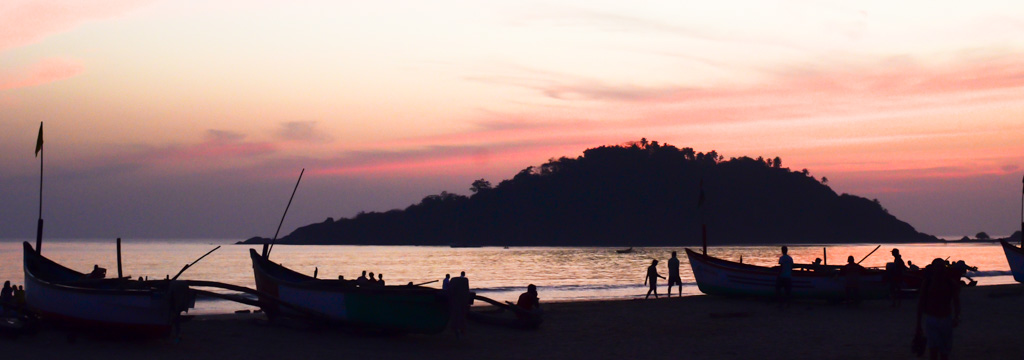
The party vibe of Goa that I had heard about was in short supply: the beach more or less shuts down completely at 11:00 PM. Regardless, there were 650 ml bottles of beer to buy for 60 Rupees at the store on the main drag (much cheaper than the 150 I had grown accustomed to paying), and artillery-style fireworks that any tourist can purchase and fire off at will on the beach – so loud that I thought the town was under siege. Had the Portuguese come to take Goa back five hundred years after they first landed here in 1510?
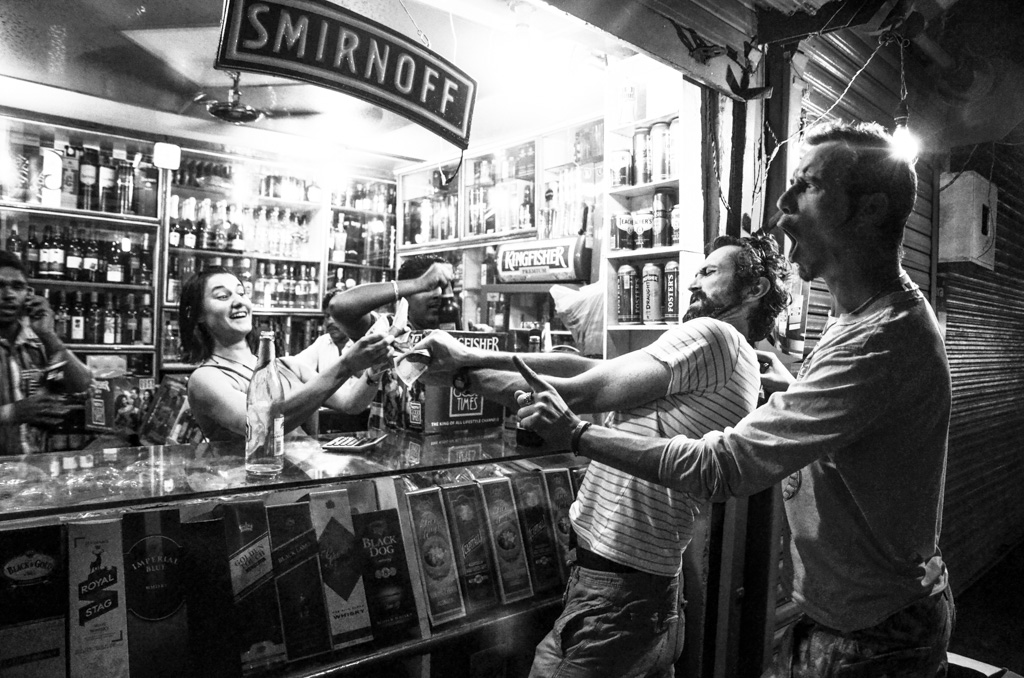
a joint British/Australian attack on a Goan liquor store. Palolem Beach.
I made some backpacker friends on Palolem Beach and found their small palm-tree-fueled campfires for a couple of consecutive nights, each one shut down by a security guard or a lack of beer or timber. It was fun, but it was no all-night-trance/dance party. Fine with me. But can I at least hang out until midnight, Goa?
Three beach days was enough – I packed the bag and jumped on the local bus north to Madgaon for connection to Panaji, the sleepy capital of the state of Goa, where I stayed for one night.
First touristic stop: Old Goa, a collection of large whitewashed churches and other religious structures built by the Portuguese beginning in the 16th century. Old Goa is about a 10 km ride from Panaji on the city bus.
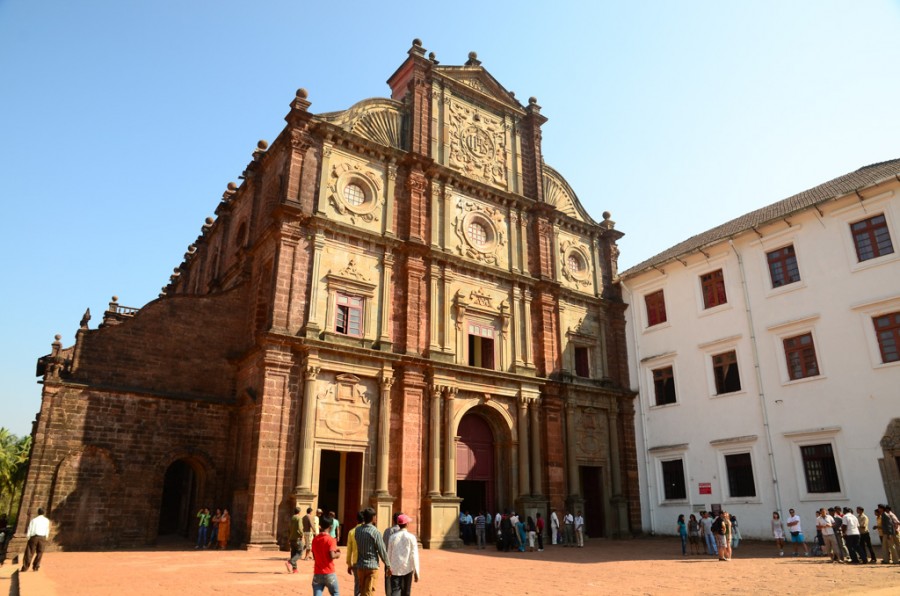
Basilica of Bom Jesus, Old Goa.
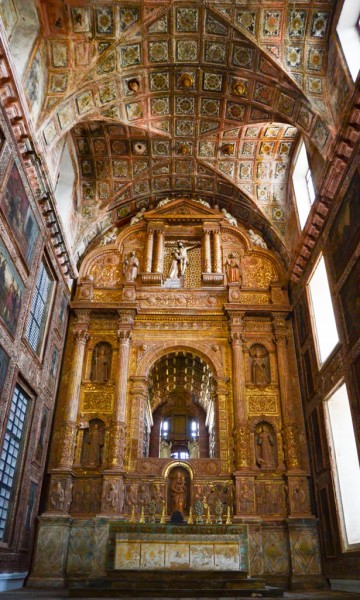
Found you, Jesus! Church of St Francis of Assisi, Old Goa.
All these garish, massive churches, in INDIA? Yeah, colonialism is kind of a weird thing. Old Goa is unique in India, considering its Christian history and architecture, but it wasn’t terribly entertaining to visit. After one trip to Europe, you’ll likely be forever burnt out on seeking cathedrals and relics. Bored, I began quietly wondering why I had even come to Old Goa.
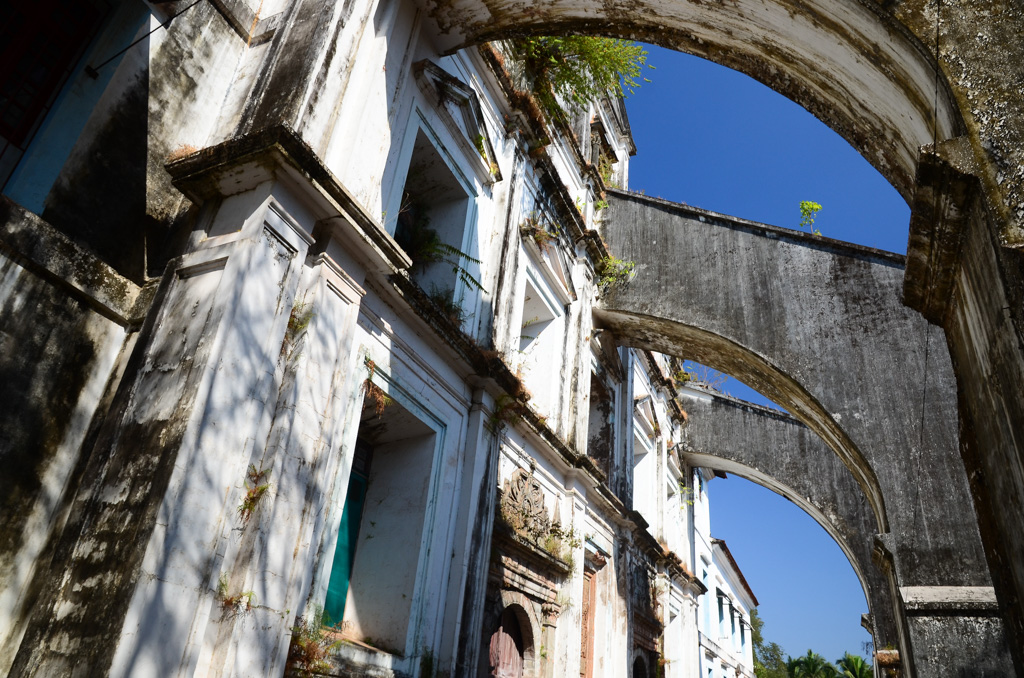
The Museum of Christian Art, Lonely Planet’s “Top Choice” of sites to visit in Old Goa, had a single piece of paper posted outside the gate, reading “CLOSED TODAY”. Ask the security guard behind the gate, and learn that “TODAY” means “FOR A MONTH OR LONGER”.
After three or four hours getting blinded by direct sunlight bounced off bright white stone walls, I was done finding Jesus in Old Goa. Back to Panaji for the night, and an a disappointing dinner of prawns vindaloo that tasted like store-bought barbecue sauce.
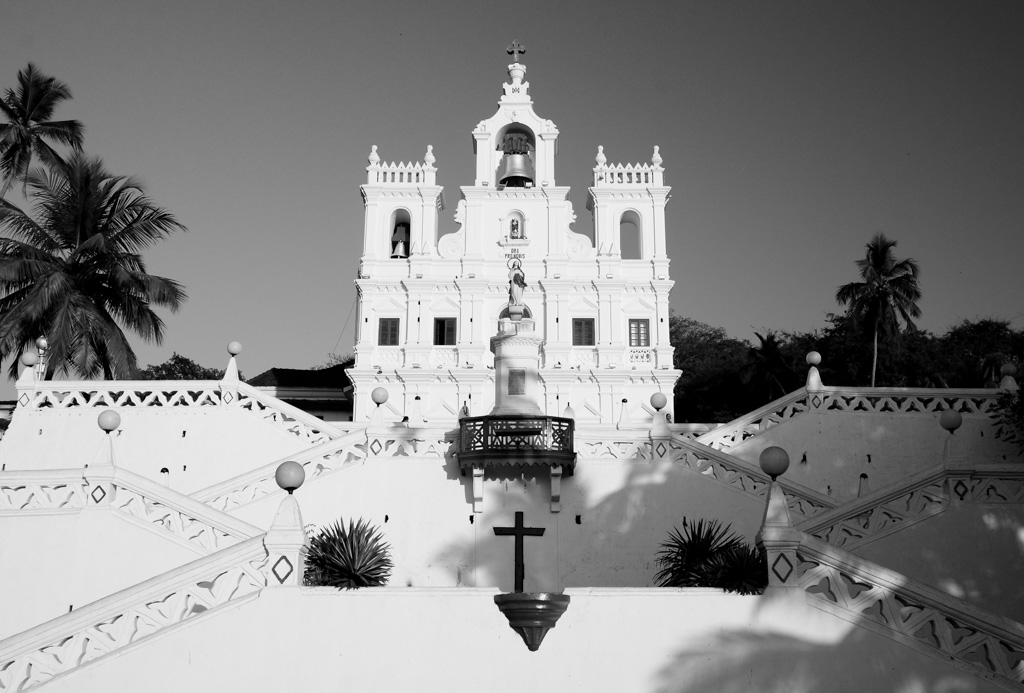
Our Lady of the Immaculate Conception Church. Panaji, Goa.
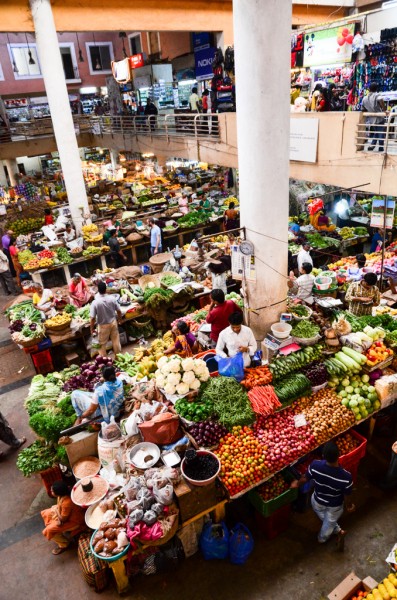
Municipal Market. Panaji, Goa, India.
Disappointing dinner aside, Panaji still has its charms. The market is fairly nice, it’s got another proud white Portuguese-style church, the town is small enough to get a grip of in short order and the streets have an old colonial charm to them. But it wasn’t so charming that I needed to spend more than one night there. I booked a night bus leaving the next day from Panaji to Hampi, Karnataka and headed inland.
NEXT STOP: Hampi (one of my favorite places in India!)







